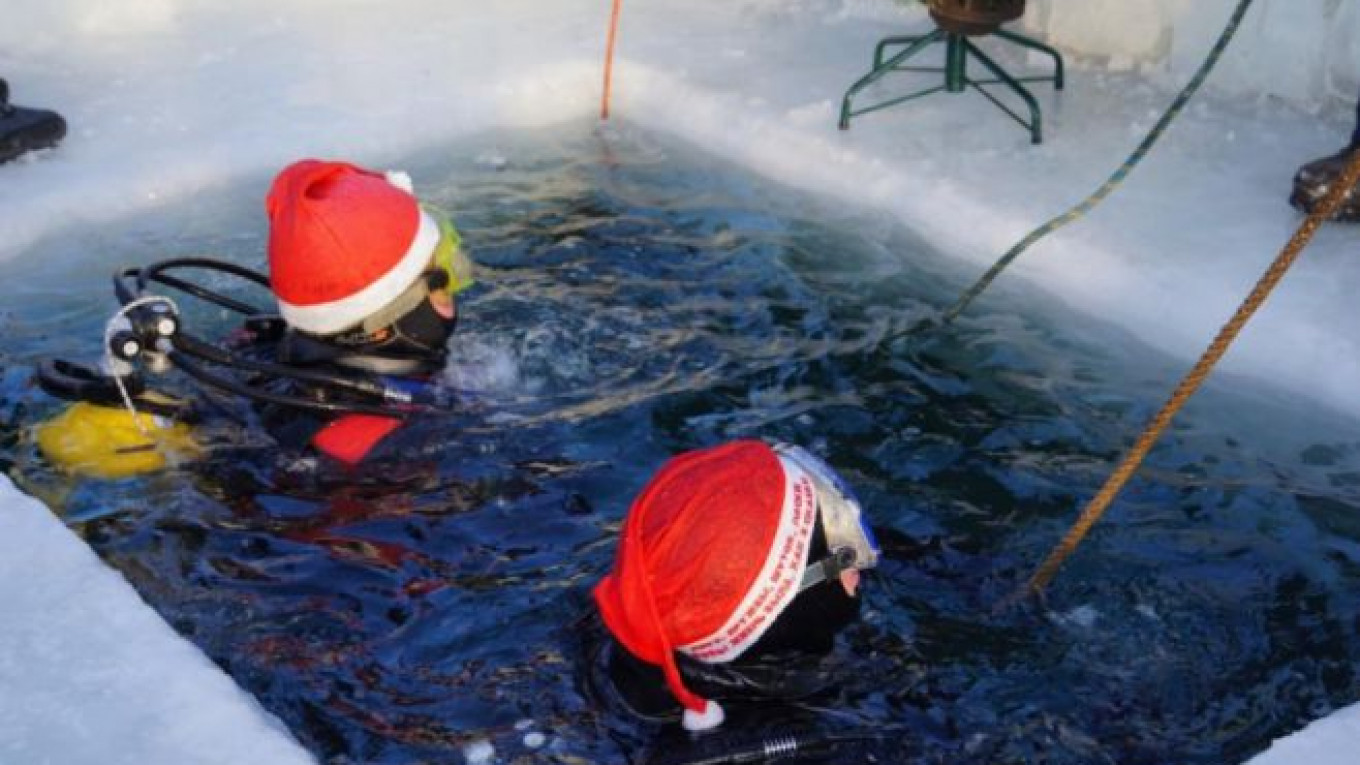Russians' love for New Year's celebrations mean festivities could not be confined to the expanses of the land - now they have also reached the bottom of the sea and Moscow's underground transportation system.
Divers from the Far Eastern Magadan region have set up a New Year's tree at the bottom of the Sea of Okhotsk, while Moscow's subway plans to have its train operators wish travelers a happy 2015 when the clock strikes midnight on New Year's Eve, according to official statements.
Three divers from the Emergency Situations Ministry on Tuesday dipped into a hole cut through the thick ice that covers the Nagaev Bay in the Sea of Okhotsk, and descended about 10 meters to set up a "green beauty" of a holiday tree on the sea floor , the ministry said in a statement.
For the occasion, divers wore red and white-trimmed Santa hats over their dry suits, according to pictures posted on the ministry's website. The dive was also intended to celebrate one of Russia's many trade holidays - Rescuer's Day, which is celebrated on Dec. 27, the statement said.
Moscow's subway, which changed its schedule to continue running until 2 am on New Year's Eve, has ordered its train operators to broadcast New Year's messages at midnight to "brighten up the mood of those who by the will of fate have found themselves on the road during that beautiful moment, "the metro's administration said in an online statement.
Holiday cheers also reached far above the Earth, when Father Frost - Russia's secular counterpart of Santa Claus - used the communication system of the space Mission Control Center outside Moscow to wish cosmonauts aboard the International Space Station a happy New Year, Russia's Channel One reported.
The ISS crew had also decorated a Christmas tree earlier this month, though the tree had a habit of floating upside down, according to video link footage.
A Message from The Moscow Times:
Dear readers,
We are facing unprecedented challenges. Russia's Prosecutor General's Office has designated The Moscow Times as an "undesirable" organization, criminalizing our work and putting our staff at risk of prosecution. This follows our earlier unjust labeling as a "foreign agent."
These actions are direct attempts to silence independent journalism in Russia. The authorities claim our work "discredits the decisions of the Russian leadership." We see things differently: we strive to provide accurate, unbiased reporting on Russia.
We, the journalists of The Moscow Times, refuse to be silenced. But to continue our work, we need your help.
Your support, no matter how small, makes a world of difference. If you can, please support us monthly starting from just $2. It's quick to set up, and every contribution makes a significant impact.
By supporting The Moscow Times, you're defending open, independent journalism in the face of repression. Thank you for standing with us.
Remind me later.






